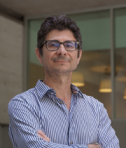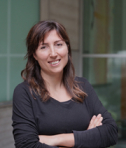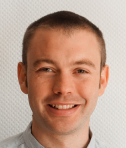 Genome Biology
Genome Biology
 Genome Biology
Genome Biology
- Research programme page
- Members

Co-Coordinators: Fátima Gebauer and Luciano Di Croce
The Genome Biology program focuses on investigating the mechanisms that lead to expression of our genome during homeostasis, cell reprogramming, and disease. We use quantitative ‘omics’ technologies, mathematical modeling, cellular biology and mouse genetics to understand chromatin organization, transcription, splicing, mRNA translation, signaling and RNA modification. Mechanisms of gene expression control are studied in the context of a variety of diseases including cancer (leukemia, lymphoma, pancreatic and lung adenocarcinomas, gliomas, melanoma, breast cancer), Down syndrome and fertility disorders.
Transcriptional regulation groups study effects of dosage imbalance of chromosome 21 (Dr. Susana de la Luna), epigenetic mechanisms in cancer and stem cells (Dr. Luciano Di Croce), single cell epigenomics in lymphomas (Dr. Renee Beekman), and epigenetic regulation of cancer metabolism (Dr. Sara Sdelci). RNA biology groups study the identification and control of RNA modifications (Dr. Eva Novoa), the regulation of alternative splicing (Dr. Juan Valcárcel) and the regulation of mRNA translation (Dr. Fátima Gebauer). Cell reprogramming studies include differentiation and trans-differentiation in the hematopoietic system (Dr. Thomas Graf), and epigenetic reprogramming in embryogenesis and the germline (Dr. Bernhard Payer).
SOCIAL ACTIVITIES: The program’s retreat, November 2019 (pictures and video)
SOCIAL ACTIVITIES: The program’s retreat, November 2016 (pictures)
SOCIAL ACTIVITIES: The program’s retreat, October 2013 (pictures)
GROUPS
DUAL-AFFILIATED GROUPS
STAFF SCIENTISTS
Integrated in a senior research group, Staff Scientists support the research of the group, while having a degree of scientific independence to lead their own research line (i.e. co‐mentoring of PhD students, being senior authors in publications and applying for grants). As Faculty Members, Staff Scientists are evaluated every 4 years by an external committee composed of SAB and ad‐hoc members in the framework of the Programme’s evaluation.

















